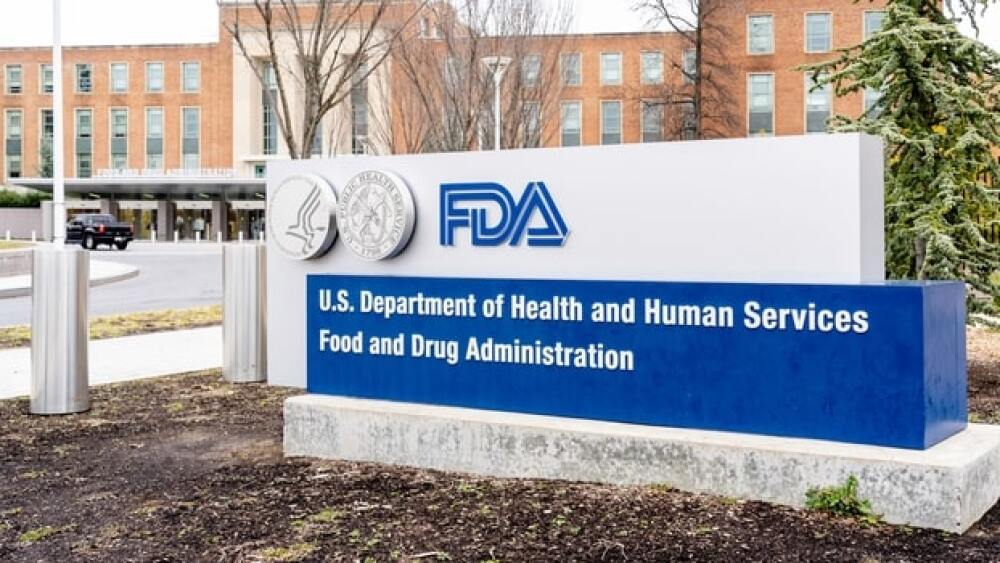The FDA uses special designations to get new, breakthrough treatments to patients in the greatest need.
JHVEPhoto/Shutterstock
Availability of safe drugs to treat serious, dangerous diseases is a top priority of all in healthcare. The FDA developed these four distinct approaches to make drugs for rare, pediatric and otherwise unsuccessfully treated diseases are available as rapidly as possible: Priority Review, Breakthrough Therapy, Accelerated Approval and Fast Track. Here are three drugs that received one of these distinctions this week.
Zymeworks’ Zanidatamab
Zanidatamab received FDA Breakthrough Therapy designation for patients with previously-treated HER2 gene-amplified biliary tract cancer (BTC). Breakthrough Therapy designation is granted to new medicines for serious conditions when clinical evidence shows a substantial improvement over currently available therapies on a specific endpoint. This designation was granted based on an ongoing Phase I study of the drug.
BTC is a rare and aggressive cancer, affecting the bile tract. Comprising approximately 3% of all adult cancers, prognosis for those diagnosed is usually poor. Zanidatamab has the potential to be the first HER2-targeting therapy approved for metastatic BTC patients.
The drug takes a new approach to cancer treatment. As a bispecific antibody, it can simultaneously bind two non-overlapping epitopes of HER2. The unique design facilitates dual HER2 signal blockade, increased binding, and removal of HER2 protein from the cell surface. This leads to encouraging antitumor activity in patients.
In addition to the Breakthrough Therapy designation, the FDA has also granted two Fast Track designations to zanidatamab – one for refractory BTC as a single agent and one in combination with chemotherapy for first-line gastroesophageal adenocarcinoma. The drug also received Orphan Drug designations for the treatment of biliary tract, gastric and ovarian cancers from the U.S.
Moleculin Biotech’s WP1066
With unexpected and encouraging results, Moleculin announced approval for a Rare Pediatric Disease designation for its child brain tumor drug candidate WP1066.
The designation also comes with a transferrable Priority Review Voucher (PRV) once the company submits an NDA for each of the three indications – diffuse intrinsic pontine glioma (DIPG), medulloblastoma and atypical teratoid rhabdoid tumor. PRV’s have proven to be quite valuable to companies who sell for a tidy profit, up to $100 million or more.
Moleculin’s focus is on groundbreaking therapies for highly resistant cancers and viruses. The blood-brain barrier keeps many cancer drugs from reaching brain tumors, which severely limits treatment options. The past 12 years of clinical trials for brain tumor drugs have yet to show a statistically significant improvement in overall survival.
Inspired by active ingredients found in bee pollen, molecule WP1066 modulates both the immune response to tumors and the aberrant activity of oncogenic transcription factors that enable tumor survival and progression. The patient’s own immune system will then fight tumors while reducing cell signaling that supports tumor activity.
“The approval of these three Rare Pediatric Disease designations is a reminder of just how important our efforts are to potentially help children with brain tumors,” said Walter Klemp, Chairman and CEO of Moleculin.
Y-mAbs Therapeutics’ Danyelza
Y-mAbs’ monoclonal antibody has been granted accelerated approval by the FDA. Danyelza, in combination with granulocyte-microphage colony-stimulating factor, is turning up to be a much-needed treatment for patients 1 year and older with relapsed or refractory high-risk neuroblastoma in the bone or bone marrow.
Neuroblastoma is by far the most common cancer in infants and accounts for about 6% of all cancers in children. The average age for diagnosis is 1-2 years old, with 90% diagnosed by age 5. For high-risk neuroblastoma, the target of Y-mAbs drug, the 5-year survival rate is around 40-50%.
The accelerated approval is based on overall response rate and duration of response in two pivotal studies. A confirmatory, postmarketing clinical trial will enroll a minimum of 80 patients with a primary endpoint of overall response rate.
“Today is an important day for children living with refractory/relapsed high-risk neuroblastoma,” said Thomas Gad, founder, Chairman and President. “It’s very exciting to see this treatment go from being an experimental therapy used at my daughter’s bedside to now being FDA approved. On behalf of Y-mAbs, I want to thank all the patients and physicians who took part in our clinical trials and our scientific partner, Memorial Sloan Kettering, for helping us achieve this goal.”
Danyelza should be available in the U.S. in the coming weeks.






